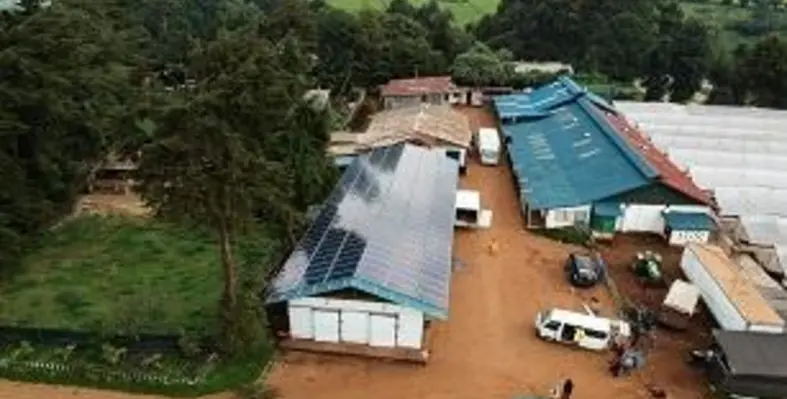The World Bank Group’s new Country Climate and Development Report (CCDR) for Ghana has estimated that at least one million more people could fall into poverty due to climate shocks, if urgent climate actions are not taken
The analysis called for pursuing a development pathway that builds resilience to climate change and fostered a transition to low-carbon growth through a combination of policies and public and private investments.
Without prompt actions, higher temperatures and heat stress will affect crop and labour productivity, and more erratic rainfall patterns will damage buildings and infrastructure. Land degradation, water insecurity and local air pollution will also hamper human capital and productivity.
“The report demonstrates that Ghana can simultaneously pursue its long-term development and climate goals,” said Pierre Laporte, World Bank country director for Ghana, Liberia, and Sierra Leone. “Ghana’s contribution to global greenhouse gases emissions is small, with emissions on a per capita basis at 24% of the global average. The country can take a more resilient development pathway, avoiding costly lock-ins, leapfrogging to cutting-edge technologies, and starting to mobilise climate finance.”
The report identified six priority areas for a climate resilient and low carbon development pathway that will generate more green, resilient, and inclusive growth in the country:
• adopting an integrated approach to agriculture and environmental management by fostering integrated landscape management, promoting climate-smart agriculture, and supporting adaptation of coastal communities
• building sustainable cities and resilient infrastructure systems through better urban development, enhancements in resilient mobility infrastructure and services, and improved waste management
• boosting disaster risk preparedness through early warning systems, better national financial preparedness against climate shocks, and adaptive health and social protection systems
• realising new opportunities for managing forest resource as an asset for climate resilience, including for carbon sinks focusing on reversing deforestation and promoting cleaner cooking
• promoting a transition to clean energy by scaling up renewable energy sources and strengthening regional energy markets
• modernising transport systems by, among others, improving public transportation and updating vehicle standards.
In the context of high debt and tight fiscal constraints, Ghana will need to carefully prioritise investments starting from no-regret actions that maximise resilience benefits at an affordable cost. The country will need to take an urgent action to restore macroeconomic stability and debt sustainability, and improve business enabling environment to mobilise funds from various sources, including private and development finance. The report estimates the cost of climate action at around US$2bn per year (in present term value) until 2050, equivalent to 2% to 3% of cumulative GDP over the same period.
“The report shows that the private sector can lead Ghana's green growth through areas such as green building, renewable energy, climate-smart agriculture and energy efficiency improvements, which IFC is supporting by increasing investment and advisory services to such ventures,” said Kyle F. Kelhofer, IFC’s senior country manager for Benin, Ghana, Guinea, and Togo.
In addition, the authors highlight the role that the financial sector can play to leverage opportunities for green and blue bonds, insurance, and other financial protection mechanisms that can help address climate and disaster risks. Concessional finance and overseas development assistance will also be critical to support public goods measures.
To reduce the impact on the poor, Ghana will need to focus on improving responsive social protection systems and safety nets for vulnerable groups, strengthening financial inclusion, and building skills for new green jobs and livelihoods.
The report highlighted that taking a climate resilient and low-carbon pathway could turn challenges into opportunities: it delivers more than US$26bn in economic benefits by 2040.














